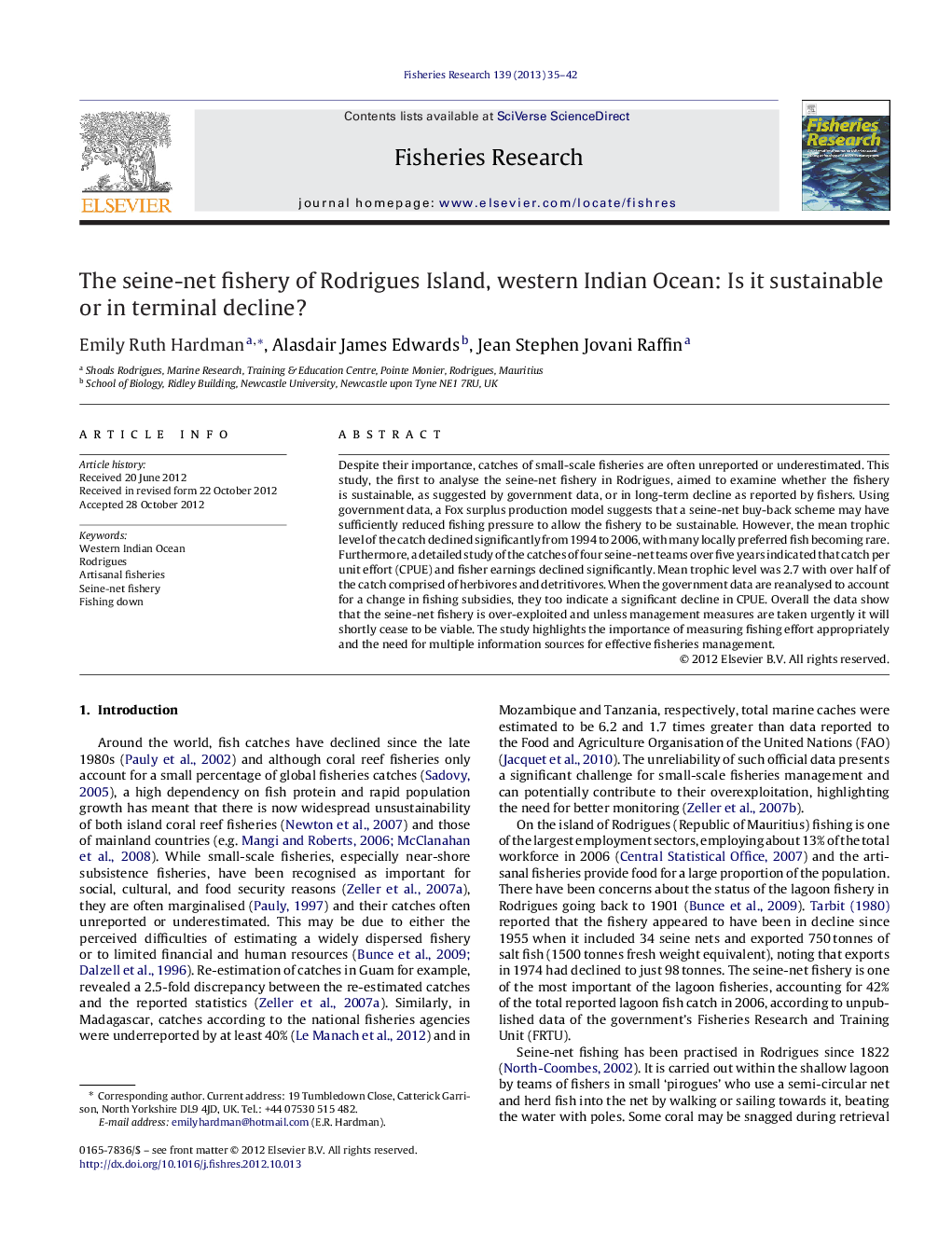| Article ID | Journal | Published Year | Pages | File Type |
|---|---|---|---|---|
| 4543260 | Fisheries Research | 2013 | 8 Pages |
Despite their importance, catches of small-scale fisheries are often unreported or underestimated. This study, the first to analyse the seine-net fishery in Rodrigues, aimed to examine whether the fishery is sustainable, as suggested by government data, or in long-term decline as reported by fishers. Using government data, a Fox surplus production model suggests that a seine-net buy-back scheme may have sufficiently reduced fishing pressure to allow the fishery to be sustainable. However, the mean trophic level of the catch declined significantly from 1994 to 2006, with many locally preferred fish becoming rare. Furthermore, a detailed study of the catches of four seine-net teams over five years indicated that catch per unit effort (CPUE) and fisher earnings declined significantly. Mean trophic level was 2.7 with over half of the catch comprised of herbivores and detritivores. When the government data are reanalysed to account for a change in fishing subsidies, they too indicate a significant decline in CPUE. Overall the data show that the seine-net fishery is over-exploited and unless management measures are taken urgently it will shortly cease to be viable. The study highlights the importance of measuring fishing effort appropriately and the need for multiple information sources for effective fisheries management.
